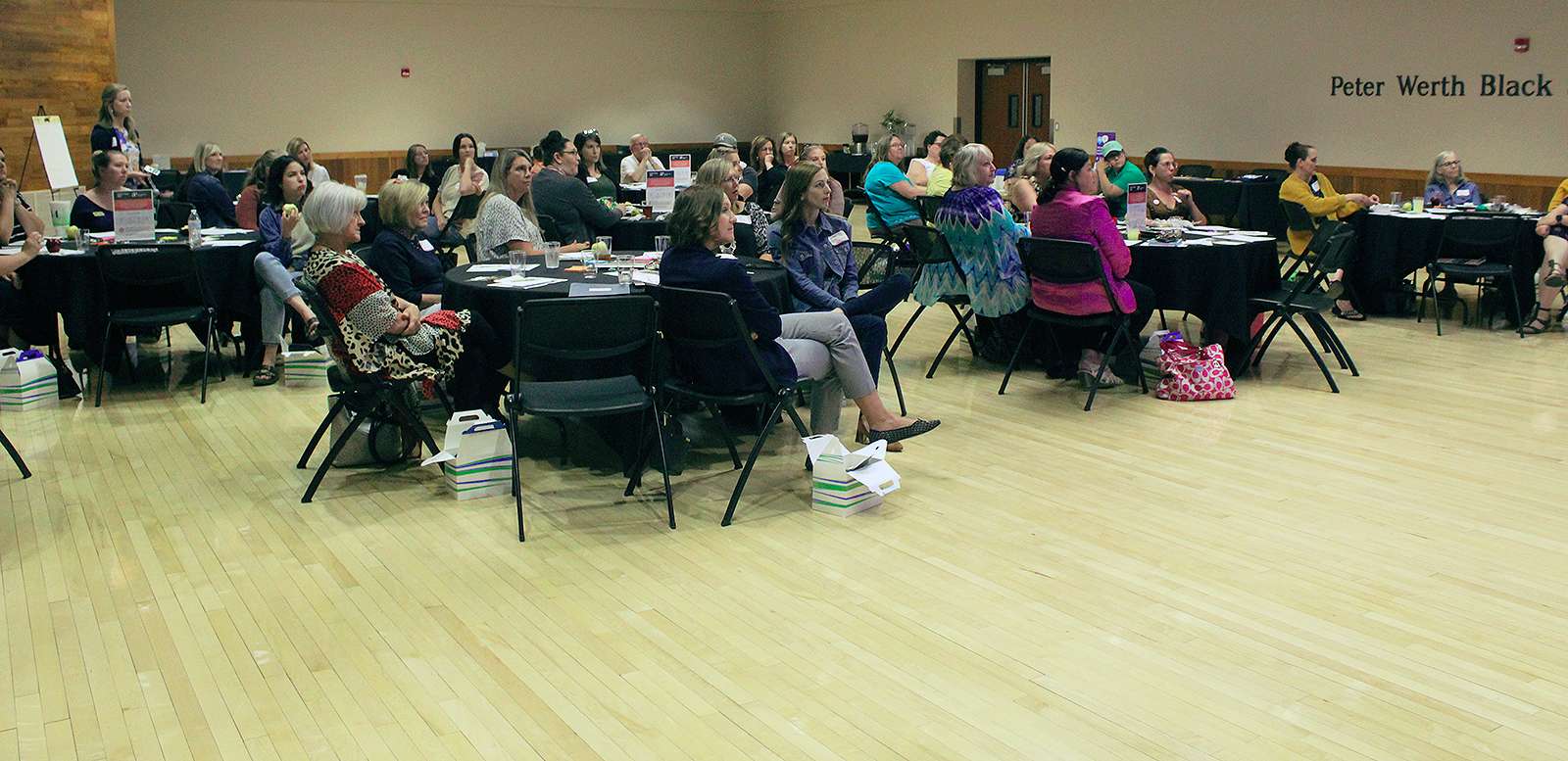
By CRISTINA JANNEY
Hays Post
A nonprofit, nonpartisan advocacy group was in Hays on Tuesday to facilitate discussion and advance research on barriers to women.
Child care and health care were the two top topics of discussion among the women present with some saying they are reluctant to expand families or change jobs because of a lack of child and health care.
United WE, which stands for United Women's Empowerment, is a nonprofit based out of Kansas City, Mo. Its mission is to advance all women's economic status and promote civic leadership among women.
Infant care in Kansas is 1.3 times more expensive than college tuition, according to the Untied WE.
One woman at the event said she has two children, ages 2 and 3. She would like to have another child, but said has decided not to expand her family at this time because she can't afford the child care for an additional child.
She said not only is child care not affordable, but it can also be very difficult to find. Her children have already been in five child cares but she keeps having to move the children because the providers have closed.
Billie Crawshaw, participant, said, "A lot of my friends who have children are working to provide day care. All of their income goes to day care."
Another women, who worked in the food and beverage industry, said she struggles to find child care during the evening when she works.
United WE officials said they are hearing reports from women across the state that they can't find care for school-aged children during the summer.
Providers have to count their own children 11 and younger in their head counts during the summer. This reduces the number of child care spots available and income for the providers.
A Plainville resident said state regulations for home child care make it difficult for providers to stay in business.
She said legislation is being proposed to increase the age of children considered in their child count to 15 and younger. She said child care is especially scarce in rural areas and the strict regulations are closing what few providers are available in small communities.
Another woman said her daughter's job in Salina would not allow her to take her full maternity leave, despite her experiencing a high-risk pregnancy. She had to quit the job.
She then her daughter couldn't find child care for her premature baby.
Sarah Meitner, a Hays mother with a special needs child, said she can't find summer child care or after-school care for her special needs son. She has to arrange her work schedule around being home when he gets out of school.
Health care, family leave<br>
Several women said they would be unable to take a job that did not have health care.
Participants said even with good health-care benefits, some still struggled to pay for health-care costs.
Although telehealth services are filling some gaps in western Kansas and rural areas, Crawshaw, Kansas Department Health and Environment Working Healthy Benefit specialist, said she works with individuals who do not have phones or access to internet.
That is not only a barrier to accessing care but applying for services and completing insurance paperwork.
Several of the women also expressed concerns about affording medication for themselves or family members, as well as struggling with what they deemed onerous paperwork required by insurance companies for reimbursement.
Women at the town hall also expressed concerns about accessing leave to care for the health needs of their children or elderly parents. Almost all of the participants said they had to care for either children or elderly family members and some had to care for both.
Most of the women said they had access to family leave, but it was unpaid.
Montse Anza, 24-year-old Hays student, said her father was in a diabetic coma last year. Her mother only received one week of leave from her job. Anza had to return home to help take care of her father because her mom had to go back to work.
Karla Crawford, participant from Natoma, said she frequently has to take time off to care for her elderly parents.
"The thing that bothers me the most is that is going to affect my Social Security when I go to retire," she said. "If I was married that would be one thing, but do I have to married?"
Crawford has children with special needs. When they were younger, she had to miss work to take her children to health care appointments.
"When you miss work like that, sometimes you miss bonuses. Sometimes you miss pay raises because of your attendance. It shouldn't affect those things," Crawford said.






